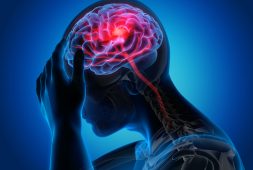
A recent study suggests that even moderate alcohol consumption, as minimal as one beer or glass of wine per day, can have a notable impact on systolic blood pressure, particularly in individuals without pre-existing hypertension.
Published in the journal Hypertension, the study sheds light on the potential cardiovascular effects of light drinking and raises questions about the commonly accepted thresholds for safe alcohol consumption.
A professor of epidemiology and public health at the University of Modena and Reggio Emilia Medical Schoolin Italy and senior study author, Marco Vinceti, MD, PhD, says, “Even low alcohol consumption is detrimental to human health.”
Dr. Vinceti also serves as an adjunct professor at the Boston University School of Public Health.
Published in the journal Hypertension, the research, which included both men and women, revealed that even low levels of alcohol intake were associated with negative effects on systolic blood pressure. Furthermore, in men, light drinking was also linked to increases in diastolic blood pressure – the “bottom number” that measures blood pressure when the heart is at rest between beats. These findings challenge the assumption that light alcohol consumption may be harmless in the absence of hypertension.
What Is Considered a Healthy Number for Blood Pressure?
According to the American Heart Association (AHA), they define normal blood pressure as a systolic reading below 120 mmHg and a diastolic reading below 80 mmHg for most adults. Hypertension is diagnosed when systolic blood pressure reaches at least 130 mmHg or diastolic readings exceed 80 mmHg.
Historically, alcohol consumption has been considered a risk factor for hypertension, aligning with other factors such as aging, obesity, a sedentary lifestyle, and a high salt diet, as noted by the World Health Organization (WHO). WHO now maintains that there is no safe level of alcohol consumption due to its recognized impact on heart health.
As per Dr. Vinceti, the study results provide fresh evidence to support WHO’s endorsement of abstinence when it comes to alcohol. “When it comes to drinking, less is better, and no consumption is best of all for blood pressure,” Dr. Vinceti says.
Alcohol Consumption Elevates Hypertension Risk in Individuals with Additional Risk Factors
The study in question analyzed data from seven trails, involving over 19,000 participants without a history of hypertension, heart disease, diabetes, liver disease, or alcoholism. Participants provided information about their weekly alcohol consumption, with one standard drink defined as 12 grams of alcohol- approximately the amount found in a 12-ounce beer, a 5-ounce glass of wine, or a 1.5-ounce shot of liquor.
Comparing blood pressure over time for nondrinkers and regular alcohol consumers, the study found that systolic blood pressure increased by 1.25 mmHg with one daily drink and 4.9 mmHg with two daily drinks, in comparison to nondrinkers. Diastolic blood pressure also rose, albeit only in men, by 1.14 mmHg with one daily drink and 3.1 mmHg with two daily drinks.
While these increases may not individually cause hypertension in those with normal blood pressure, they contribute to overall population-level heart disease risk, particularly among older adults and those with existing hypertension risk factors, says Dr. Vinceti.
Blood Pressure Could Also Increase Over Time Due to Aging
The study does acknowledge limitations, such as a lack of data on how aging might influence the link between alcohol consumption and blood pressure increases.
The study wasn’t designed to prove whether or how alcohol may directly cause blood pressure to increase. However, there are clear biological effects that alcohol can have on the body that could cause high blood pressure to develop, explains Nieca Golberg, MD. Dr. Goldberg, who was not involved in the study, is the medical director of Atria New York City and a clinical professor at the NYU Grossman School of Medicine.
Moreover, alcohol can also raise levels of cortisol – the stress hormone – which can lead to increased blood pressure and higher heart rates, says Dr. Goldberg, who also happens to be an AHA expert volunteer. She also says that drinking can raise blood sugar levels as well as contribute to weight gain.
“For someone with high blood pressure, these changes can cause worsening of blood pressure and potentially interfere with some blood pressure medications, as many medications and alcohol are metabolized in the liver,” Goldberg says.
Further investigation is necessary to precisely assess the extent of the risk associated with the minor blood pressure elevation observed with a daily single drink in the study, as highlighted by Dr. Goldberg.
But even if the risks aren’t clear for light drinking, the lack of benefit is. “Alcohol does not prevent heart disease,” Dr. Goldberg says.



